In Europe, the European Parliament formally adopted the long-awaited first comprehensive regulation on AI at its plenary session on 13 March. A few days later, on the other side of the Atlantic, the United Nations General Assembly adopted a non-binding Resolution on the design, development, deployment and use of AI for the first time. This resolution encourages the development of regulatory and governance principles and frameworks and includes standards to ensure that safe, secure and trustworthy AI systems are created.
In particular, it calls upon Member States to a) expand participation of developing countries in digital transformation, emphasising capacity building in AI systems, technology transfer, and the reduction of digital divides through increased digital literacy; b) improve digital infrastructure and foster partnerships to enable developing countries to engage in the AI life cycle, thereby aligning with the 2030 Agenda’s Sustainable Development Goals, while prioritising the safety, security, and trustworthiness of AI systems globally; c) empower the least developed countries in particular, by utilising new technologies like artificial intelligence to achieve the aforementioned goals; d) boost funding for research and innovation in digital technologies, safe AI systems, and global capacity building; e) foster global innovation ecosystems to empower developing nations in their efforts to advance technical proficiency, utilising data and computer resources, enhancing regulatory frameworks, and promoting inclusive enabling environments for trustworthy AI systems-based solutions; f) develop strategies for facilitating technology transfer, capacity building, and financial support for developing countries in relation to AI systems aligned with their national needs and priorities; and to promote the accessibility and utilisation of safe, secure, and trustworthy AI systems to advance sustainable development across economic, social, and environmental realms.
Regarding the protection, respect and promotion of human rights and fundamental freedoms, the UN resolution affirms, among other things, that online rights must mirror offline rights throughout the AI life cycle of AI systems. It encourages Member States to promote safe, inclusive and equitable AI systems in order to be of maximum global benefit, while fostering an empowering environment so that key challenges can be addressed, including sustainable development, with a focus on developing countries and inclusivity.
It also recognises the importance of continuing the discussion at the international level on developments in AI governance, in order to keep pace with the evolution of AI systems and their uses. To this end, the global AI community is encouraged to facilitate comprehensive research, mapping and analysis that will benefit all stakeholders by shedding light on the potential impacts and uses of artificial intelligence systems and the rapid technological changes that are taking place. It also underlines how important it is that the various stakeholders involved in AI guide the development, promotion and implementation of effective, internationally compatible safeguards, practices, standards and tools in order to ensure the safety, security and trustworthiness of such systems. Moreover, it recognises the need for all communities to engage and participate in a more coherent, efficient, coordinated and inclusive way, in the governance of safe, secure and trustworthy AI systems.
The UN resolution was sponsored by the US and supported by all 193 member states of the organisation (including China). However, the Convention on AI, finalised by the Council of Europe’s Committee on Artificial Intelligence (CAI), which also advocates the protection, respect and promotion of human rights and fundamental freedoms, does not seem to have received the same “warm” welcome, as the treaty is facing a diplomatic blockade by non-voting observers at the Council of Europe (the US, Canada, Japan and the UK), who want to exclude private actors from its scope, thus limiting the initiative’s impact.
T.K.



